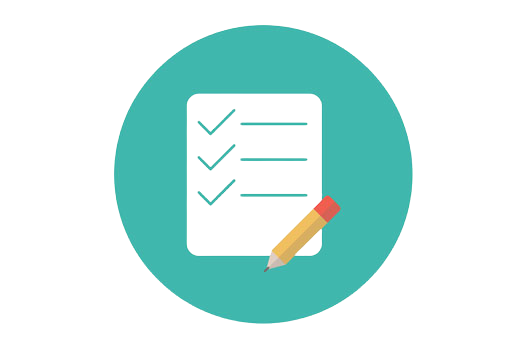Your Shopping Cart

Enroll now to become a Certified DevOps expert with Edtia DevOps Masters Program and upgrade your skills.
DevOps Engineer Masters Program helps you become skilled in DevOps principles like CI/CD, Continuous Monitoring, and Continuous Delivery, utilizing tools like Puppet, Nagios, Chef, Docker, Git & Jenkins.
This DevOps Engineer master's program helps you gain valuable skills like Continuous Integration, Continuous Deployment, and Delivery, and hands-on experience with DevOps tools like Git, Docker, Kubernetes, Puppet, and more.
The learning of DevOps helps reduce the time for development cycles and ensures a faster rate of innovation. If the functions and development groups are in various silos, it will be challenging to determine whether the application is prepared for operation.
There are no prerequisites for enrollment in the Masters's Program.
experienced professional working in the IT industry, Administrator , an aspirant preparing to enter the world of DevOps
DevOps Engineer operates with developers and the IT staff to oversee the code releases. They are either developers interested in deployment and network operations or sysadmins who have a passion for scripting and coding and move into the development side, where they can enhance the planning of tests and deployment.
Understanding customer requirements and project KPIs. Executing further development, testing, automation tools, and IT infrastructure. Preparing the team structure, activities, and involvement in project management activities.
As companies are digitized, the demand for DevOps has grown at a remarkable rate. The future of IT companies is now hanging on the DevOps approach, making it the most demanding job. The market has grown from 40 to 45 percent within the last five years, increasing the demand for DevOps.
DevOps is important because it's a software development and operations approach that enables faster development of new products and easier maintenance of existing deployments.
This Module will teach Linux distribution, shell scripting, basic and advanced Linux commands, and package management.
This Module will teach about various software development tools available on Linux.
know about Linux security administration and Virtualization.
Know what Python is and touch on the basics.
Learn different types of sequence structures, related operations, and their usage.
learn how to make generic python scripts, how to address errors/exceptions in code, and finally, how to extract/filter content utilizing regex.
This Module helps you get familiar with the basics of statistics, different measures and probability distributions, and the supporting libraries in Python that assist in these operations.
learn in detail about data visualization
Learn the DevOps environment.
Know Source Control Management and learn the functionalities of Git.
In this Module, you will learn about the different actions performed through Git and be introduced to Jenkins and Maven.
In this Module, learn how to perform Continuous Integration by building applications with the help of Maven and create deployment pipelines using Jenkins.
Learn how to manage and configure your infrastructure using Ansible Ad-Hoc commands, Playbooks, and Roles.
Know the core concepts and technology behind Docker.
Learn how to use the Docker Hub registry, deploy a multi-tier application using Docker Compose, and create a swarm cluster.
In this Module, you will learn about Container Orchestration and Basic container management using Kubernetes.
Discover and deploy various service discovery mechanisms, utilize Volumes for persistent storage and deploy StatefulSets for stateful applications.
Know how to collect, monitor, and visualize data utilizing Prometheus and Grafana.
Learn how to provision and manage infrastructure on a Cloud Platform (AWS) utilizing Terraform Configuration Files.
Utilize Terraform State commands to manage the current state of your infrastructure. Deploy a usable and working infrastructure operating Terraform.
This Module will teach you about Selenium and how to automate your test cases for testing web elements. You will also get introduced to X-Path, TestNG, and integrate Selenium with Jenkins.
Learn how to monitor your tasks using various plugins continuously and implementing Nagios Commands
Learn about various cloud services and service providers and get a brief idea of how to implement DevOps using AWS.
Learn Security and EC2 Compute service works in AWS Cloud.
understand the origins and the need for Containerization in modern applications. Know how Docker emerged as one of the best container platforms in the industry and about the technology behind it.
Learn to set up the Docker Engine on Google Compute Engine Instance and perform various operations on Containers.
Discover how to write a Dockerfile and create custom images by building the Dockerfile. Build and manage a remote registry to store your custom images
Make persistent storage solutions for stateful containerized applications. Use various methods for storing container data and perform image cleanup for optimization.
Design and run multi-container applications utilizing Docker Compose and manage clusters of Docker nodes operating Docker Swarm.
Configure Docker network utilizing various built-in network drivers such as a Network Bridge and Overlay Network. Secure your environment by authenticating images utilizing Docker Content Trust.
Learn to Install and configure Docker Enterprise Edition and use the Universal Control Plane and the Docker Trusted Registry in your enterprise cluster.
Learn about container orchestration engine Kubernetes and its various services to help orchestrate Docker containers.
In this Module, you will be introduced to essential aspects of DevOps and Amazon Web Services.
learn how to automate Software Development Lifecycle utilizing different AWS development tools.
introduction to essential aspects of CloudFormation.
learn various aspects of Elastic Beanstalk and how to deploy and monitor your application in Beanstalk.
know the nitty-gritty of AWS OpsWorks and learn how to make stacks and manage configuration with AWS OpsWorks.
understand how to execute the concepts of continuous monitoring and management using CloudWatch and CloudTrail, and learn to set up event-driven automated actions.
learn how to execute highly functional and fault-tolerant systems. Also, know Disaster recovery strategies that effectively make your system resilient at any point of failure.
This Module will teach container management tools like Elastic Container Registry (ECR), Elastic Container Service (ECS), and Fargate.
This section focuses on exam questionnaires and guidance on preparing for the AWS Certified DevOps Engineer Exam.
understand its challenges and how Splunk can be leveraged to gain Operational Intelligence. Get introduced to various components of Splunk and how they can be installed.
learn how to make and manage users, understand the Splunk Admin role and responsibilities, and the architecture of Splunk Index.
Learn the various Splunk Data onboarding procedures and question that data with basic and advanced Splunk commands. Use various keywords to search and filter the Indexed data based on the requirements.
Learn about fields and ways to extract them.
In this Module, you will learn to create and define Lookups, create Tags to use in search, and create and manage Field aliases and Data Models.
learn to schedule alerts, create Reports and Dashboards, and create different visualizations.
Learn how to set up a Cluster of Splunk instances. Execute both Search Head clustering and Indexer clustering in this Module.
In this final module, you will be presented with different Use cases, and you will have to solve each of those scenarios. Besides that, you will also function on a specific project dealing with solving a real-time scenario.
The average salary for a DevOps Engineer in the US is $126,301.
Fast & frequent delivery. Reliability. Scale with minimum risks. Security. Continuous Integration. Continuous Delivery. Reduced time to recovery & reduced bottlenecks.
To better understand the DevOps Engineer Masters Program Certification Training, one must learn as per the curriculum.
DevOps is easy to learn but not always quick to master because it needs attitude and behavior changes.
DevOps is important because it's a software development and operations approach that enables faster development of new products and easier maintenance of existing deployments.
Coding and scripting are two necessary skillsets that DevOps engineers should possess. Python, Ruby, Python, Java, Javascript, PHP, Bash, Shell, and Node. Js are among the most recommended programming/scripting languages.


Every certification training session is followed by a quiz to assess your course learning.

The Mock Tests Are Arranged To Help You Prepare For The Certification Examination.

A lifetime access to LMS is provided where presentations, quizzes, installation guides & class recordings are available.

A 24x7 online support team is available to resolve all your technical queries, through a ticket-based tracking system.

For our learners, we have a community forum that further facilitates learning through peer interaction and knowledge sharing.

Successfully complete your final course project and Edtia will provide you with a completion certification.
A DevOps Engineer Masters Program Training is a certification that demonstrates that the holder has the proficiency and aptitudes needed to work with DevOps.
By enrolling in the DevOps Engineer Masters Program Training and completing the Module, you can get the Edtia DevOps Engineer Masters Program Certification.
DevOps Engineer Masters Program has been curated after thorough research and recommendations from industry experts. It will help you differentiate yourself with multi-platform fluency and have real-world experience with the essential tools and platforms. Edureka will be by your side throughout the learning journey - We're Ridiculously Committed.
Yes, We will provide you with the certificate of completion for every course part of the learning pathway. Once you have successfully submitted the final assessment and our subject matter experts verified it.
